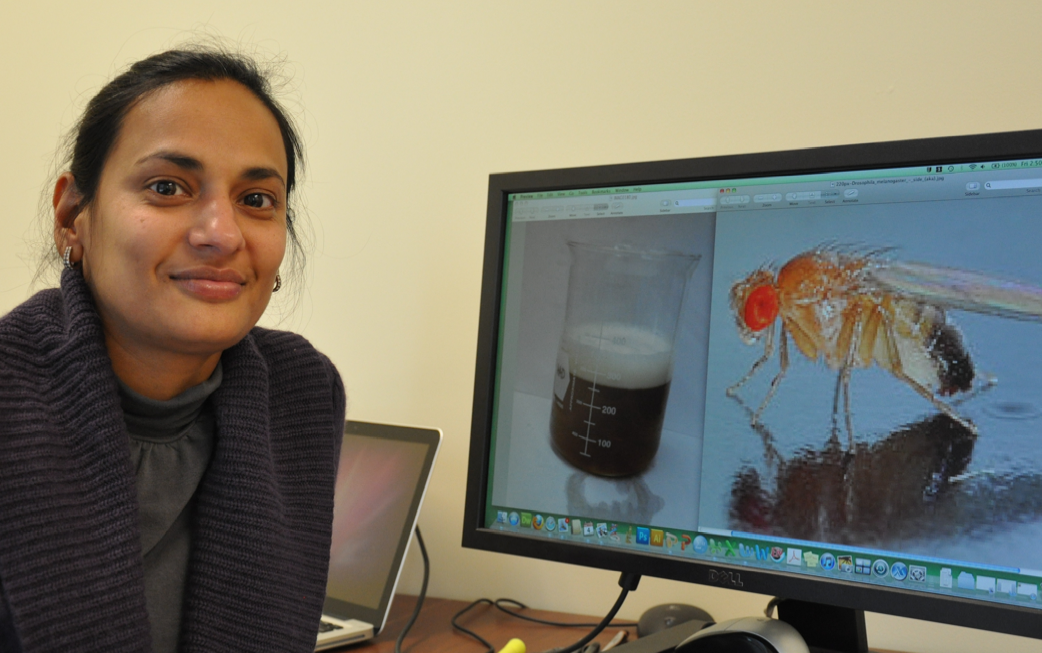Please note: Osher Rainforest will be closed for maintenance Jan. 14–16.
Science News
Flies to Beer
November 28, 2011

UC Riverside’s students may not be party animals, but their flies certainly are! Given the choice between very sweet sugar water and pale ale (the brand was not revealed), the flies chose the beer each time.
The Riverside flies are not alone. Scientists have known about flies’ love of beer since the 1920s. But Anupama Dahanukar, an entomologist at UC Riverside, wanted to know why so she headed to the lab.
She and her colleagues examined the feeding preference of the common fruit fly for the pale ale (the least sweet beer) and other products of yeast fermentation. They found that a receptor (a protein that serves as a gatekeeper) associated with neurons located in the fly’s mouth-parts is instrumental in signaling a good taste for beer.
The receptor in question is Gr64e. When a fly settles on beer, Gr64e detects glycerol and transmits this information to the fly’s neurons, which then influences the fly’s behavioral response.
Once the group identified the receptor, NPR reports,
Dahanukar and [colleague Zev] Wisotsky even found the particular gene responsible for flies' ability to detect glycerol. When they created flies missing that gene, and gave them the sugar water-beer choice, the flies went for the sugar water.
“Taste becomes important only after the fly makes physical contact with food,” says Dahanukar. “A fly first locates food sources using its odor receptors—crucial for its long-range attraction to food. Then, after landing on food, the fly uses its taste system to sample the food for suitability in terms of nutrition and toxicity.”
As often happens in science, Dahanukar’s discovery has left her with more questions than when she started this research. Her lab will work to answer them.]
“How do you get information from the chemical environment to the brain—not just in flies but other insects as well?” Dahanukar asks. “How is that information processed to give rise to appropriate behavior? How does feeding behavior change with hunger? These are some questions we would like to pursue.”
The research was published earlier this month in Nature Neuroscience.
Image: UCR Strategic Communications